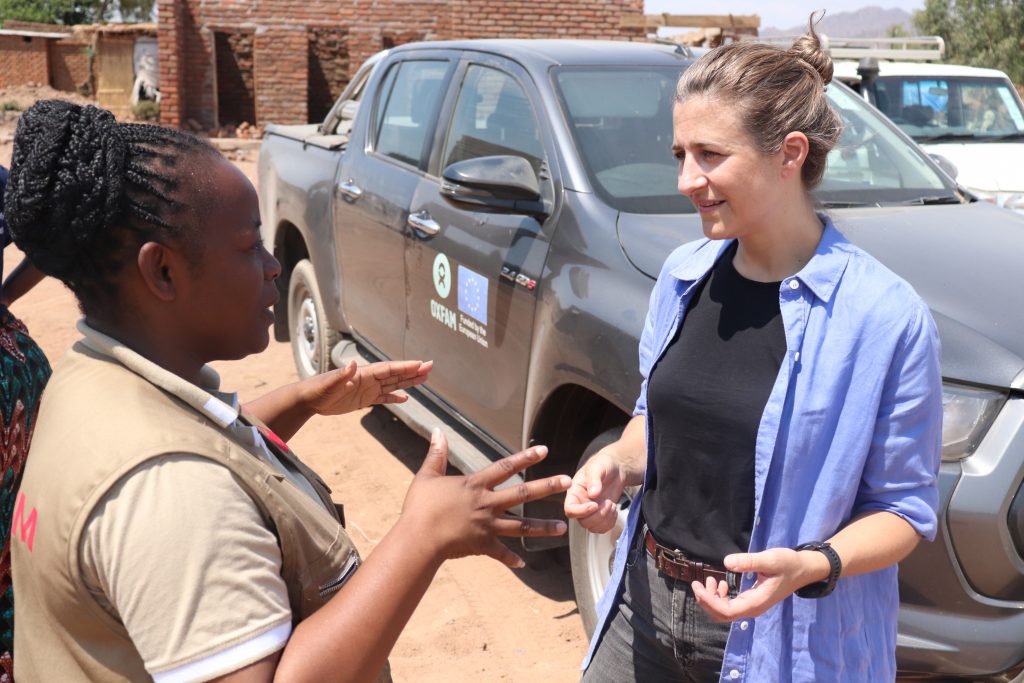Ecuador earthquake, one month later: your support in action
Oxfam's urgent response
In the immediate aftermath we deployed a humanitarian assessment team and we sent 2 tons of water pipes with the help of the Spanish Cooperation Agency AECID. Today, we have provided clean drinking water and access to sanitation to some 10,000 people in two of the worst affected areas, Portoviejo and Pedernales.
The strongest quake since 1979
The magnitude-7.8 earthquake on 16 April was Ecuador’s worst natural disaster in decades. It has been followed by hundreds of aftershocks, at least five of them of magnitude 6.0 or higher. Thousands of buildings have been destroyed or damaged and there are around 23,000 people living in temporary shelters. The most urgent need has been to provide safe drinking water and hygiene facilities to help prevent the spread of disease.
People waiting for food and water delivery in Canoa.
The earthquake caused serious damage to the community in Canoa. Most people have fled, in search of a safer refuge far from the threat of a tsunami. Today, they are still living in an extremely precarious situation at the side of the main road, without water or food.
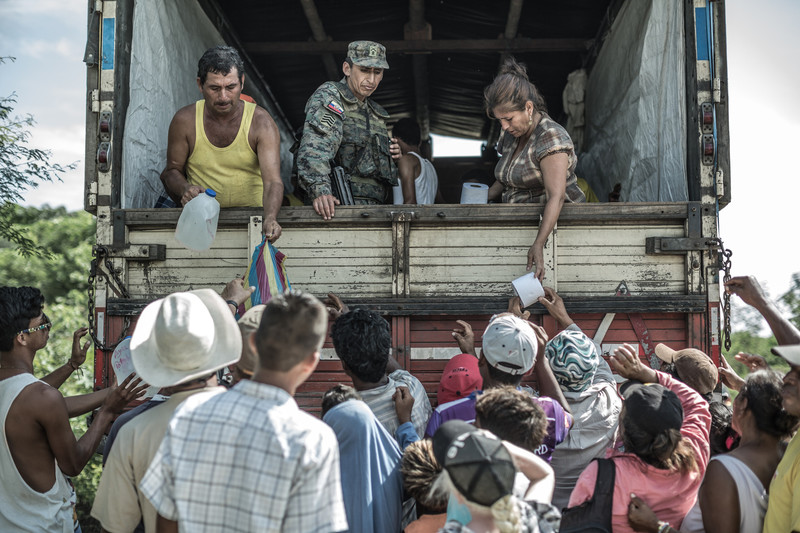
A group of people receiving emergency supplies at the earthquake shelter in Canoa.
Portoviejo, one of the most damaged cities
The centre of Portoviejo (a city of 300 000 inhabitants) is completely sealed off, with most of its buildings either destroyed or seriously damaged. Those whose homes did not totally collapse have been retrieving their possessions despite not knowing how long it will be before they can move back home.
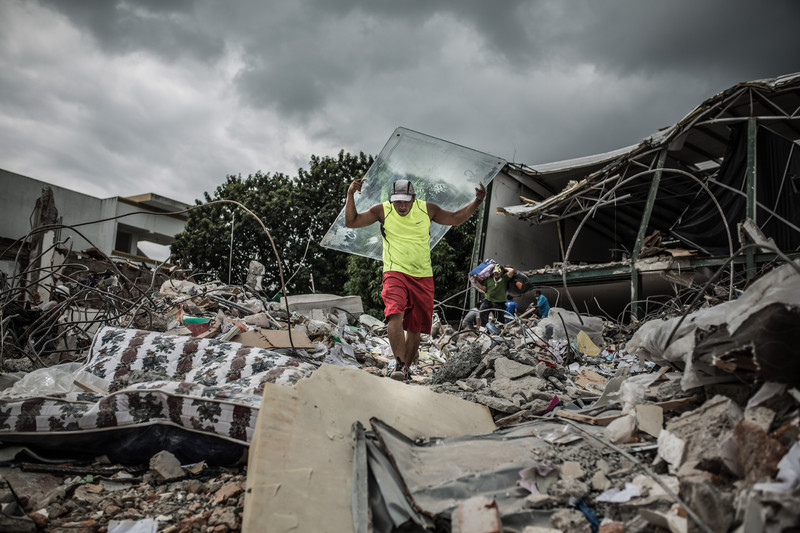
Jonaton retrieves an unbroken sheet of glass from a collapsed store to help him rebuild his home in Portoviejo.
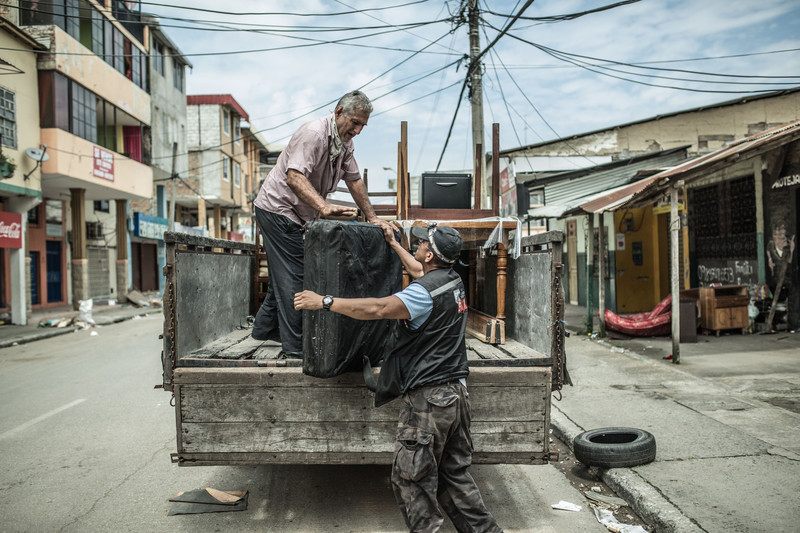
Luis Toral loads some of his belongings from a partially destroyed building into a truck in Portoviejo.
Providing water and sanitation in Portoviejo airport camp
More than 1,100 people live in make shift shelters in this camp close to Portoviejo airport, in Manbaí province.
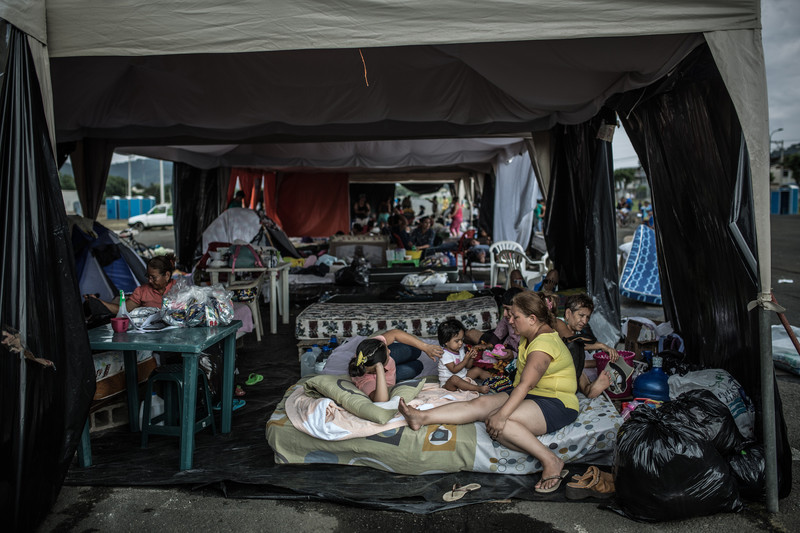
The lack of adequate shelter in the camp in Portoviejo camp means that when it rains the mattresses are left soaked through.
We have been working with local authorities to improve the conditions in Portoviejo camp and to support the distribution of water and personal hygiene equipment.
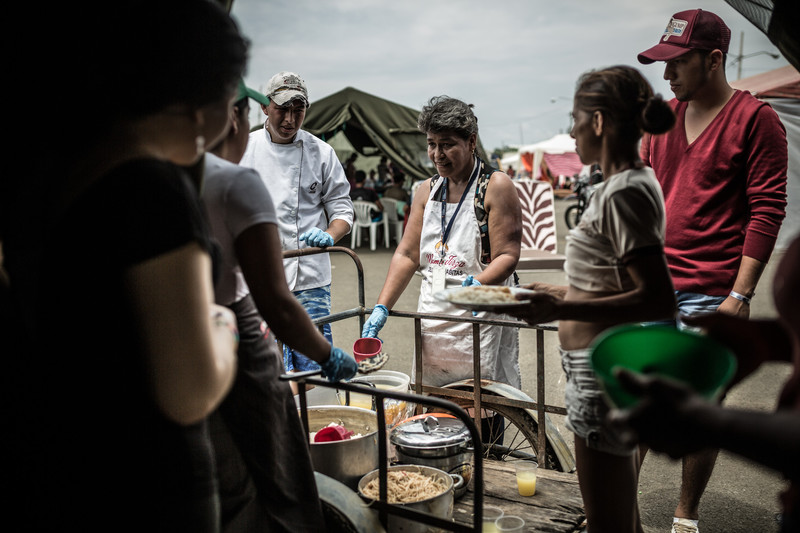
Oxfam's water tanks and distribution pipes help improve the living conditions of more than 1,000 people in the camp.
Alba's story
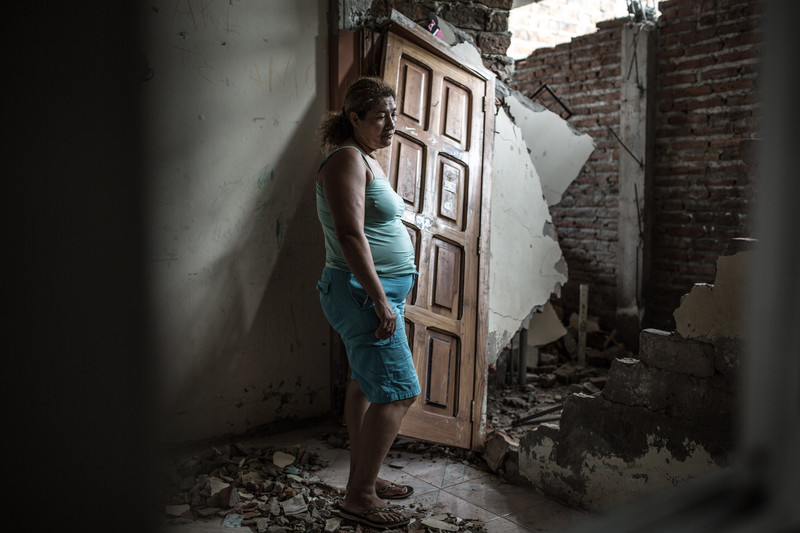
Alba stands in her ruined home that she shared with her husband Lenin, three of their children and their two year old granddaughter.
Although the external walls of Alba’s home are still standing the inside has been totally destroyed. The whole family were at the beach when the earthquake struck, keeping them safe from the falling buildings.
Lenin, Alba’s husband, has a temporary contract as a driver for an energy company and a few weeks before the earthquake they had begun to add a second floor to their home. Now they are all living in a shelter at the old airport in Portoviejo.
You can help
Help us reach more people with vital water, hygiene and sanitation equipment. Your gift to Oxfam's Emergency Response Fund will go directly toward our emergency work, present and future.
Make your tax-deductible gift to the Emergency Response Fund today.
